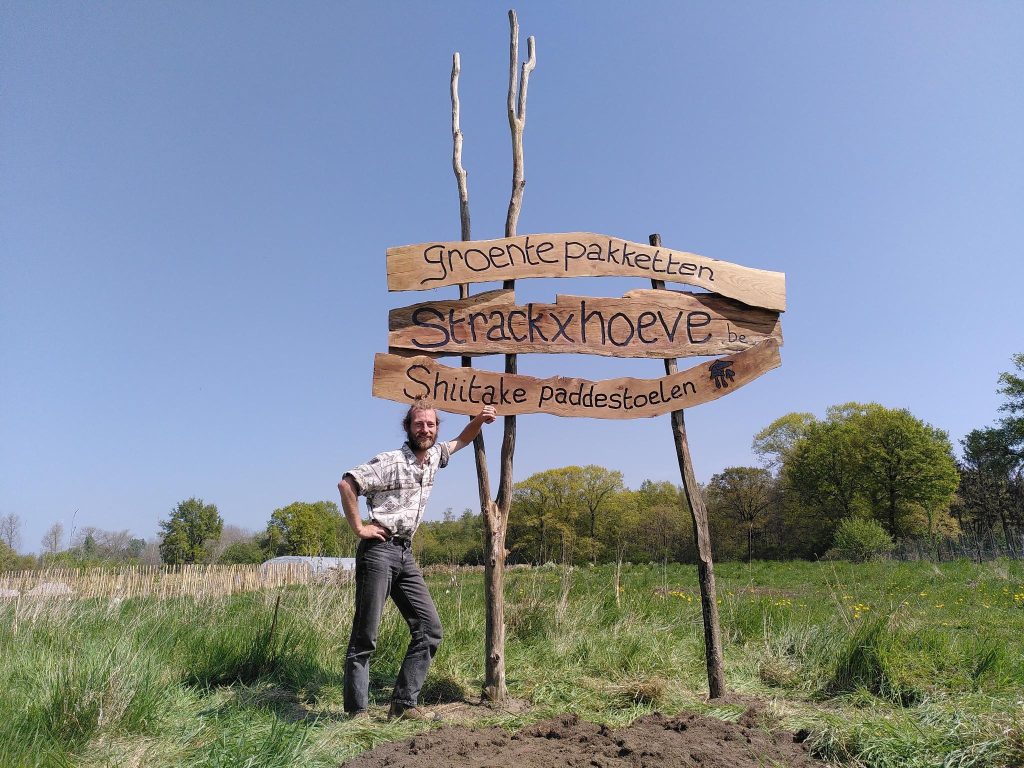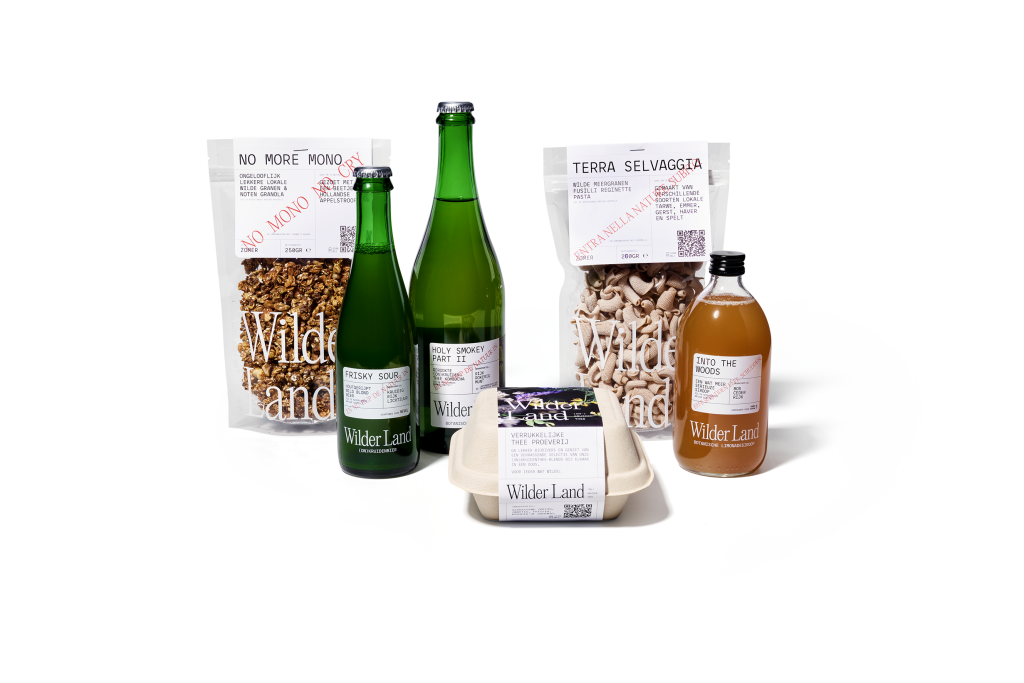Guest author: Maarten Derksen, DOEN Foundation
As the urgency to transform our food systems grows, regenerative agriculture has emerged as a beacon of hope, promising sustainability and resilience. This article delves into the early-stage financing of food pioneers and regenerative agriculture, highlighting the pivotal role of flexible, trust-based funding in driving systemic change. Drawing on the experiences of the DOEN Foundation, it explores the challenges, successes, and essential lessons learned in supporting innovative agricultural practices and business models. With practical examples and strategic insights, this piece offers valuable guidance for investors, policymakers, and practitioners committed to fostering a regenerative future.
Role of financiers in systems change
The need to reshape the food system requires no explanation here. It is also evident that in a relatively short time span of a few years, regenerative agriculture has come to the forefront for farmers, business, financiers, government, education, and consumers. We are seeing more and more startups helping farmers implement regenerative agriculture, financiers launching investment funds, and farmers demonstrating on a larger scale that farming with a healthy soil as starting point is possible. However, we also see that the transition and adaptation of the food system is not happening quick enough and are encountering hurdles. More positive business cases are needed, financing tools for farmers and startups does not align with what is needed, and farmers are stuck in the current system of financing and regulations. At the same time, there is no shortage of solutions and ideas on how things can and should be done differently. If we truly want to transition to a different system, it is important that these innovative ideas, new business models, and entrepreneurial farmers who want to do things differently are supported with early-stage and risk capital, even if the positive business case still has to be proven.
We, at the DOEN Foundation, are in the fortunate position to fund these pioneers. As fund of the Dutch Postcode Lottery, one of the largest private fundraisers in the world, we can take risks in the early stages, support pioneers who do things differently, and place impact at the centre. To accelerate the transition to a regenerative food system, we focus on financing innovative niches, the first movers. These are the system changers who show what it is possible, not just technological innovations but more so business models in practice. DOEN has been active in financing pioneers in different sectors for over 30 years and has learned many lessons in financing transitions.
In early stages of system change, you can only be catalytic when not only taking risks but also be flexible, financing based on trust, and be patient with a focus on long-term impact. It also means you, as financier must be critical of your own role, your own investment criteria, instruments and financial return. Does it align with what startups and the transition really need?
Second, for system change, financing only startups is not enough; actors who support them are just as important, such as accelerators and funds. As are actors who challenge the old system and implement new forms, rules, and institutions, or communicate about it. As a financier, you can have a role not only in financing but also in connecting and inspiring others, and initiate partnerships in the sector and (co-funding) networks, such as the Regenerative Agrifood Alliance.
Evaluation 7 years Food Systems Financing by DOEN
Recently, the Thrive Institute conducted an evaluation of 7 years of food transition financing by DOEN. Analyses and interviews with partners and stakeholders highlighted 5 areas that enable impact and accelerate the transition: financing pioneers who other financiers still consider non-financeable; daring to work in uncertainty and thereby gaining unique lessons and insights for the market; connecting networks: networks are frequently used to share knowledge and connect parties, both initiatives among themselves and to follow-up financing; providing financial and personal trust to pioneers motivates and creates resilience in a challenging environment; using a communication platform to make initiatives visible to the general public and genuine involvement with the pioneers, making them feel seen, supported, and helped.
Why is it important to finance the early stage?
There are 5 reasons why it is important to finance that very first stage:
- By financing solutions that are not yet interesting to most financiers, new narratives can emerge;
- By supporting pioneers who encounter system barriers, you gain better insight into these barriers and possible solutions that can inspire future policies;
- By strategically combining advice, linking to relevant partners, and various forms of financing, you help pioneers scale up to future-proof and inclusive chains;
- By developing structures and working methods that other financiers may adopt, we spread a transition-oriented approach;
- As a financier, you can open doors for pioneers and make advice land faster.
An example of a first mover is Lenteland: Lenteland develops regenerative community farms of 10 to 25 hectares in pleasant locations close to residential areas. The farmer lives on the farm and engages in various other activities besides farming, such as a farm shop where you can buy fresh vegetables and fruits, renting out space for lodging, or provide space for local businesses that process food. The community owns the farm, including the land and buildings.

Another example is Wilder Land: Wilder Land makes products that restore nature. They sow herbs on the edges of meadows and fields of farmers in the Netherlands. A portion is harvested, for which the farmer receives compensation, and used for tea, soft drinks, and other products. Nature also benefits: the diversity of herbs and their roots make the soil healthier and attract insects, including pollinators like bees. Thanks to this compensation, the farmer can more easily transition to regenerative practices.

More than startups
For systemic change, it is necessary not to focus solely on individual cases but to look at the entire portfolio, hoping to better determine what the market needs: what other financiers play a role, which financial instrument fits best. We know where we want to go, but we cannot make predictions. It is therefore important to also finance sector-strengthening initiatives and ecosystem builders.
An example of a sector-strengthener is the venture builder studio Fresh Ventures for startups in regenerative agriculture. The concept for Fresh Ventures emerged from investor feedback that there was not enough pipeline to be found. With the venture builder, startups are built that address systemic bottlenecks in the regenerative food system. So far, startups have good traction. One graduate from the studio Collie, which makes regenerative grazing easier. And we now see more similar regenerative venture builders emerging focused on other regions, such as Overstory in the Midwest and Rootical in Uganda.
For startups, patience and flexibility are important; the business case on paper is mostly different in practice, and the market is not always ready for or familiar with the business model. Often, the right data is lacking, making it difficult to make the right decisions about whether something works or not.
That is also why we occasionally finance research, such as research by the Soil Heroes Foundation on the impact of regenerative agriculture on water retention and nutritional value of produce. And that is why we finance ecosystem builders. For many startups, the price of the product or service is a bottleneck to growth, not only due to scale but also because it cannot compete with the non-sustainable variant. For the transition to a new system, it is therefore not enough to show the alternative, but new rules and agreements must be worked on so that new business models can work. That is why we support EARA, and also challengers of the existing system such as True Price or Steward Ownership.
Lessons learned
In addition to maintaining and expanding what works, there are, of course, points of attention. One of them is the Regenerative Economy cannot that easily be defined, it is rather a set of principles that can differ per context but together forms a whole. That is why, at DOEN, we started working with guiding principles instead of a strict definition for the Regenerative Economy. We stimulate the application of as many principles as possible that are part of a sustainable regenerative future. These principles can be found in this article. The principles were drafted together with partners and stakeholders, and for us have set a new norm for the system.
Second, it is important to realize that pioneers are essential for system change, but they often face great pressure in their challenging task. That is why impact first focus, patience and flexibility are important. And we must realise that also if a startup does not succeed, it could have still made huge impact and contributed to systems change. Or that it takes longer than expected for a positive business case to be realized. For example early-stage and patient capital for Stichting Herenboeren Nederland, when there was only one farm, has given it the space to grow to now 23 farms owned by the community.
And third, always put the end-user central, whether it is a client or consumer or earth. To often we see a mismatch between buyer and seller, or that the solution does not work for the client in a specific context. This is especially true for small holder farmers in Africa. In the end, if the client does not like it or cannot purchase or use it, the product or service will not be bought.
In conclusion
Our current agricultural food system is linear, and so are the associated revenue model. Legislation, regulations, and financing models do not fit the regenerative agriculture we aim for. Therefore, it is crucial to continue looking at other financing models, such as the community farm models of Lenteland and alternative revenue models for farmers to transition, such as Oogst and Wilderland. And alternative forms of ownership are also becoming increasingly important: efficiency and large scale can no longer be the basis of the agricultural system. Food should no longer be considered a commodity but a common good, something that belongs to all of us.
